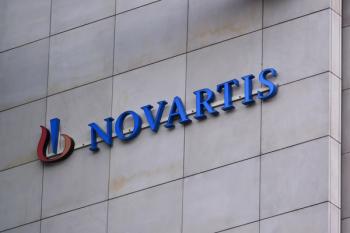
China: The Giant Has Awoken
With a new Chinese pharma or biotech company listing on either the HKEX or STAR exchange in China almost every week, it is important consideration US pharma and biotech companies to have a focused China market strategy, writes Enoch Kariuki.
I first travelled to China about ten years ago and was impressed by the incredible energy with which the Chinese government and people were focused on enabling entrepreneurship across all sectors. At that time, China’s biopharma industry was dominated by mostly small molecule, generics companies, and family-owned businesses. It has grown rapidly since then. The primary drivers have been the country’s rapid economic growth, an enabling regulatory environment, massive inflows of capital, return of western educated Chinese nationals with significant experience in the global biopharma industry —“the returnees” — and the opening up of the Hong Kong and Shanghai stock exchange to biotech IPOs.
In 1979, China instituted economic reforms that opened international trade, enabled investment and encouraged free-market practices. Since then, it has been one of the world’s fastest-growing economies, with GDP growth averaging 9.5% through 2018.1 This economic growth has turned China into the world’s second largest healthcare market, overtaking Japan in 2016. In 2018, drug sales in China reached $137 billion, doubling in just six years. As sales continues to grow, it is projected that by 2030, drug sales in China will equal half of the US market in total sales.2
It is amazing to think that the biotech industry in China just started in 1984. In 1997 there were 200 biotech companies in China. In 2000, that number had tripled to 600. This year, biotech companies listed in Hong Kong and China are growing at a record pace. Chinese healthcare companies raised a record $23.3 billion in IPO financing last year, compared with only $7.9 billion in 2019, according to consulting firm ChinaBio.
The Chinese government has also worked to improve the registration process for innovative drugs and harmonize the approval process with global standards. For example, in 2011 it took 31 months to get a clinical trial application approved in China. By 2018 it took just two months, according to a BCG report.3
Concurrent with the rapid economic growth, the Chinese government has instituted a series of regulatory reforms that are aimed at improving access to healthcare for its citizens, fostering innovation and competition, and streamlining their drug approval process. In 2015, the Chinese regulatory agency began to undergo reform, such as the updated Drug Administration Law, to reduce a backlog of over 20,000 pending drug registration applications.The new reform ushered in a series of policies intended to foster pharmaceutical innovation as well as strengthen intellectual property (IP) protection, accelerating the pace of new drug development and translational science in China.
The China Food and Drug Administration (CFDA) — the predecessor to the National Medical Products Administration or NMPA) — has also focused its efforts on creating efficiency in the drug approval process and harmonizing its practices with global standards. These reforms have encouraged innovation and spurred many biotech companies in China.
Cognizant of the government’s efforts to encourage innovation in China, investors have increased their activity in the country as they seek to fund the next generation of Chinese biotechs. In parallel with the increased investment, there has been a flood of “returnees” who have returned home to set up biotech companies and take advantage of the great opportunity that exists in the country. Leading biotech such as Junshi Biosciences, Hengrui, BeiGene, CStone, Hansoi and others are testament to this trend.
While initially the focus for Chinese biotechs was on in-licensing products from the west, BeiGene’s $2.2 billion deal with Novartis for its PD-1 drug earlier this year signaled a shift, with innovative Chinese pharma companies out-licensing their compounds for global development. Other international companies such as AbbVie, AstraZeneca and Lilly have also taken note of the innovation happening in China and licensed products discovered there for global development.
In 2018, the Hong Kong Exchanges and Clearing Limited (HKEx) made reforms that enabled it to open its doors for the listing of biotechnology companies with no operating income. In 2019, The Science and Technology Innovation Board (STAR Market) established by the Shanghai Stock Exchange was officially opened for trading and has since a brought new vitality to China’s capital market and the development of China’s technology. The HKEx and STAR Market have opened up listing opportunities for Chinese biotechnology companies adding fuel to the innovation fire that is happening in China.
Investors have taken note of these changes and are racing to invest in the space. One of the largest top-tier healthcare investment funds, OrbiMed recently announced its fourth Asia fund, investing primarily in China and India, with a fresh $800 million to deploy. SciClone Pharma (HK: 6600) a Shanghai in-licensing company recently listed on the HKEX and raised $279 million. Previously, the company was listed in the US and was taken private for $605 million. The recent HKEX IPO valued SciClone at $1.6 billion, likely a much higher valuation than what the company would have gotten in the US.
Every week, there seems to be another Chinese pharma or biotech company listing on either the HKEX or STAR exchange in China. I don’t expect this current momentum to stop anytime soon. US pharma and biotech companies should have a focused China market strategy; it will be an important consideration going forward for any company looking to be competitive on the global stage.
About 200 years ago, Napoleon returned from China and said, “That is a sleeping dragon. Let him sleep! If he wakes, he will shake the world.” In the last 25 years, China has definitely awoken!
Enoch Kariuki is the former CFO of VelosBio. He currently sits on the Board of Zentalis Pharmaceuticals and Imago Biosciences.
Notes
Newsletter
Lead with insight with the Pharmaceutical Executive newsletter, featuring strategic analysis, leadership trends, and market intelligence for biopharma decision-makers.




